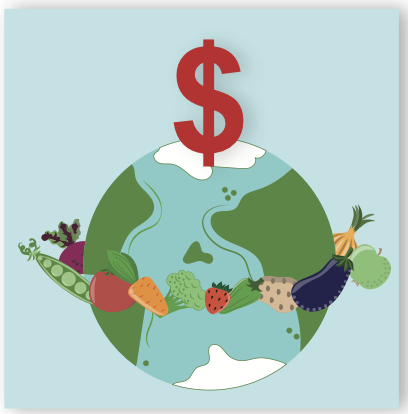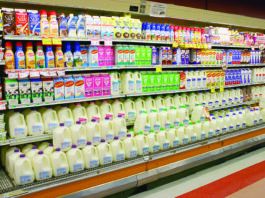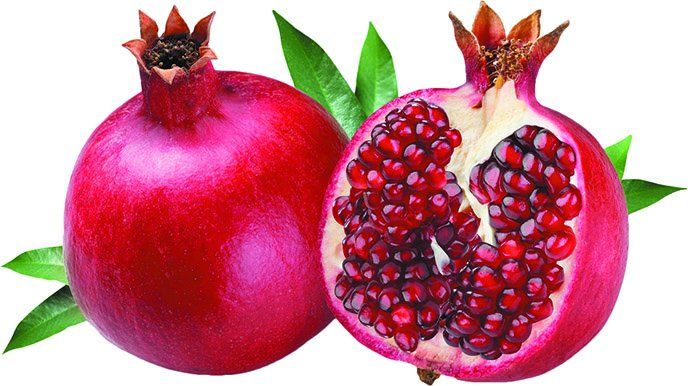Millennials Struggle to Keep Sugar Vows
Despite consumers vows to cut down on added sugars, a new report says their purchasing habits dont always follow through. The Sweeterner360 survey of 15,000 people found that 25% claim to avoid sugar-up from 21% last year-with millennials leading the way; 46% of the post-Generation X group say theyd pay more for healthier sweeteners. Only about 20% of all consumers have actually reduced their sugar intake, however, and millennials buy slightly more sugar- and high fructose corn syrup-sweetened products than their share of overall food and beverage purchases.
FDA Cautions on Coconut Oil Claims
Dont believe everything you read about coconut oil, the US Food and Drug Administration cautions. The agency issued a warning letter to Carrington Farms, a maker of coconut products, over claims that coconut oil and its chemical constituents treat diseases. Claims included treating gastroenteritis, ringworm, hemorrhoids, ear aches, joint and muscle inflammation, and heart disease. Such disease claims are limited to pharmaceutical products. Moreover, the FDA noted that coconut oil cannot be touted as low in calories or as healthy because that term can be used only for foods containing less than 15% of calories from fat.
Extra Pounds But Not Enough Nutrients
Overweight and obese Americans are more likely to fall short on important vitamins and minerals, according to a new analysis of data from national nutrition surveys. The findings, published in the Journal of the American College of Nutrition, support the theory that the diets packing on pounds nonetheless dont supply adequate nutrients. Normal-weight individuals had the highest intake of most of the nutrients studied, with overweight people next and those classified as obese at the low end. Obese adults intakes of vitamins A, C, D and E, dietary fiber, calcium, magnesium and potassium ranged from 5% to 12% lower than those of normal-weight adults.
Generation Z: Well Pay for Healthier Food
Young consumers in Generation Z, under age 20, are making health a priority when making food choices-and are willing to pay more for it. A new Nielsen survey of 30,000 people in 60 countries, the Global Health and Wellness Survey, reports that 41% of younger consumers say they would pay a premium for foods they perceive as healthier. That compares to 32% of Millennials (ages 21 to 34) and about 21% of Baby Boomers (about age 50 to mid-60s). People of all ages say overwhelmingly-80%-they are using food choices to try to prevent obesity and chronic diseases. Marketers seeking to appeal to those concerns need to be careful, however, as 63% of those surveyed globally say they are skeptical of food health claims. Consumers in the US and Europe, where such claims are more tightly regulated, were less likely to express skepticism (56% and 51%, respectively) than those in developing countries
European Agency Eases Caffeine Concerns
Brushing off worries about the caffeine content in energy drinks, the European Food Safety Authority issued a draft risk assessment stating that single doses of up to 200 milligrams and daily consumption totaling 400 milligrams of caffeine are safe for adults. The agency, which functions for the European Union much as the Food and Drug Administration does for the US government, also said that high single doses were safe when consumed less than two hours…
Sugar Consumption May Have Peaked
Increasing concerns about the health effects of dietary sugar may be helping to put a lid on global consumption. A new study reports that dietary sugar intake is decreasing or stable among most demographic groups, and increasing only in a few subpopulations. In findings published in Nutrition Research Reviews, researchers compared both absolute sugar intake and consumption as a percentage of calories in the US, 10 European countries, Australia and New Zealand. Just over half of those comparisons showed trends toward decreasing sugar consumption. Male Norwegian adults had the greatest decrease, while New Zealand women increased sugar intake the most. Sugar consumption in the US was down among most groups-including male adolescents, a group frequently cited in concerns about high sugar intake.
Court Mostly Backs FTC vs. Pomegranate Claims
In what may prove a landmark ruling for food and beverage health claims, a US appeals court largely upheld a Federal Trade Commission order requiring proof of promises made for a popular pomegranate-juice drink. In its original 2010 order, the FTC had challenged magazine advertisements for POM Wonderful that claimed the beverage combats heart disease and other ailments. The appeals-court ruling overturned the agencys requirement that two human clinical trials back up such claims in all cases as too onerous. But the three-judge panel agreed that the ads were misleading and that at least one randomized clinical trial could be required to substantiated any claims of treating or preventing disease.
Poll: Consumers Want Restaurant Calorie Info
Most Americans support new rules requiring calorie counts on chain-restaurant menus and prepared foods in supermarkets, according to an Associated Press-Gfk poll. The long-awaited rules announced by the US Food and Drug Administration have generated opposition from some in the food industry. (See NewsBites, February.) But 56% in the poll supported calorie counts on fast-food menus, 54% at sit-down restaurants, and 52% on prepared grocery foods. Women and college-educated people were more likely to support the rules.
Dietitians Pick Top Trends
Trends to watch in nutrition-driven consumer choices this year will include growing popularity for seeds and nuts, green tea and ancient grains such as amaranth, quinoa, spelt and freekah, according to a survey of 500 registered dietitians. The survey, conducted for the journal Todays Dietitian, predicted that consumers will eat less red meat and continue to turn away from low-fat diets. Kale and coconut will remain popular based on their perceived health benefits (accurate for kale, less so for coconut), as will healthy choices like Greek yogurt and avocado. The dietitians also predicted consumers will keep trying gluten-free and wheat-free diets to lose weight (rather than out of genuine need, as in celiac-disease patients), despite a lack of evidence supporting such regimens for weight loss, while the so-called Paleo diet will gain in popularity. Also on the rise: misinformation about nutrition, fueled in part by the Internet.
New GMO Potato Cuts Cancer-Linked Chemical
French-fries and potato-chip fans concerned about cancer risk from fried potatoes may have hope on the horizon. Idaho-based J.R. Simplot Co. has received USDA regulatory approval for a genetically modified potato that produces less acrylamide when fried. Thats the naturally occurring chemical linked to concerns about increased cancer risk from fried-potato consumption. The Innate potato, which comes in Russet Burbank, Ranger Russet and Atlantic varieties, also resists bruising, a potential money-saver for growers and processors.



























